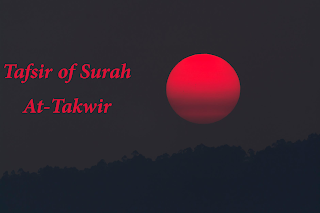Bism-Allah ar-Rahman ar-Rahim
In the Name of Allah, the Giver of Mercy, the Most Merciful
85:1 By the sky with the constellations,
85:2 by the promised day,
85:3 by the witness and the witnessed,
85:4 cursed were the people of the trench,
85:5 the fire abounding in fuel,
85:6 when they sat by it,
85:7 and they witnessed what they did against the believers.
85:8 And they resented them only because they believed in Allah, the All-Mighty, the Praiseworthy.
85:9 to whom belongs the kingdom of the heavens and the earth, and Allah is Witness over everything.
85:10 Indeed, those who persecute the believing men and women and repent not – theirs will be the torment of Hell and theirs will be the burning torment.
85:11 Indeed, those who believe and do righteous deeds – theirs will gardens beneath which rivers flow. That is the supreme success.
85:12 Indeed, the grip of your Lord is severe.
85:13 Indeed, it is He who originates and brings again.
85:14 and He is the All-Forgiving, the All-Loving,
85:15 Lord of the Throne, the All-Glorious,
85:16 Doer of whatever He wills.
85:17 Has the story of the hosts reached you,
85:18 Pharaoh and Thamud?
85:19 Yet those who disbelieve persistently deny,
85:20 and Allah is behind them, encompassing.
85:21 Nay, it is a Glorious Quran,
85:22 in a Preserved Tablet.
Suhaib, may Allah be pleased with him, said,
Messenger Muhammad [ Peace be upon him] said, ‘There was a king who had a magician. The magician came to the king and said, ‘I have become old and may die. Thus, send me a boy whom I will teach magic.’
Therefore, the king sent the magician a boy to teach him magic. The boy used to go to the magician and pass by a monk on his way to the magician. Whenever the boy passed by the monk, he would listen to his speech and admire it. And when he came to the magician, he would beat him, saying, ‘What delayed you?’ Similarly, when the boy returned to his family, they would beat him, saying, ‘What delayed you?’
Thus, the boy complained to the monk. The monk said to him, ‘If the magician asked you ‘what delayed you?’ You should say, ‘My family delayed me.’ If your family asked you ‘what delayed you? ‘You should say, ‘The magician delayed me.’ The boy did as the monk told him.
Then one day while the boy was walking, a huge beast was on the road, preventing the people from passing. Therefore, the boy said, ‘Today I shall know whether the condition of the magician or the monk is loved by Allah.’ Then he took a stone and said, ‘O Allah, if the condition of the monk is loved to You than that of the magician, I shall throw the stone to kill the beast so that the people can cross the road.’ Then he threw the stone at the beast. It killed the beast and the people could cross the road.
The news reached the monk and when the boy came to him, he said to the boy, ‘You are better than me. If you are afflicted, do not tell anyone about me.’
The boy used to treat congenital blindness, leprosy, and other diseases. The king had a courtier who became blind. He was told that there was a boy who could treat congenital blindness, leprosy, and other diseases. He was advised to go to him and take some gifts to him. The courtier went to the boy and said, ‘O boy, if you treat me, all these gifts will be yours.’
The boy said, ‘I cannot cure you, but only Allah can cure you. If you believe in Allah’s Oneness, I shall pray to Allah to cure you.’
The courtier believed in Allah’s Oneness and Allah cured him from blindness.
Later, the courtier went to the king and sat with him just as he used to sit before.
The king said to him, ‘Have you not been blind?’
The courtier said, ‘Yes.’
The king said, ‘Who gave you back your sight?’
The courtier said, ‘My Lord, Allah.’
The king said, ‘Do you have a god other than me?’
The courtier said, ‘Yes, my Lord and your Lord, Allah.’
Then, the king tortured the courtier and forced him to tell him about the boy.
Then he tortured the boy and forced him to tell about the monk.
Thus, the monk was brought to the king, who commanded him to renounce his faith, but he refused to do so.
Thus, the king commanded that a saw be put in the middle of his head and the monk was killed.
Then the courtier was brought and the king commanded him to renounce his faith, but he refused to do so.
Thus, the king commanded that a saw be put in the middle of his head and the courtier was killed.
Then the king said to the boy, ‘You shall renounce your faith or else I will kill you.’ But, the boy refused.
Then the king commanded his men to take the boy to a mountain peak. He told them to release the boy if he renounces his faith otherwise throw him from the top of the mountain and kill him.
When they took the boy to the mountain peak, they fell and died.
Then the boy went to the king, who asked him about his men. The boy said, ‘Allah protected me from them.’
Then the king commanded his men to take the boy on a boat. In the middle of the sea, they should ask him to renounce his faith. If he renounces his faith, they should release him otherwise throw him in the sea and let him drown.
Thus, the king’s men took the boy to the sea. When they were in the middle of the sea, the boy said, ‘O Allah, protect me from them.’ Thus, the boat capsized and they drowned.
Then, the boy returned to the king, who asked him, ‘Where are my men?’
The boy said, ‘I prayed to Allah and He protected me from them.’
The king said, ‘I shall kill you.’
The boy said, ‘You cannot kill me until you do as I order you to do.’
The boy said to the king, ‘Gather the people in a place. Then, crucify me, and then take an arrow from my quiver and shoot it saying, ‘By the name of the Lord of this boy.’ If you do so, you can kill me.’
The king gathered the people in a place, crucified the boy, took an arrow from his quiver, and shot him saying, ‘By the name of the Lord of this boy.’
The arrow hit the boy in the temple. The boy put his hand over his temple and then died.
The people proclaimed, ‘We believe in the Lord of the boy.’
Then it was said to the king, ‘Do you know what you did? What you feared happened. The people believed in the Lord of the boy.’
Then the king commanded that trenches be dug on the roads and that fires be kindled in them.
The king said, ‘If the people renounce their belief in the Lord of the boy, release them otherwise throw them in the fires.’
The king’s men threw the believers in the fires. Then a woman came carrying her baby. When they were about to throw her in the fire, she feared and hesitated, but her baby said to her, ‘O mother, ‘Go ahead. You are following the truth.’ Thus, she threw herself in the fire [Jama al-Bayan, Tafsir at-Tabari, 275/24].








